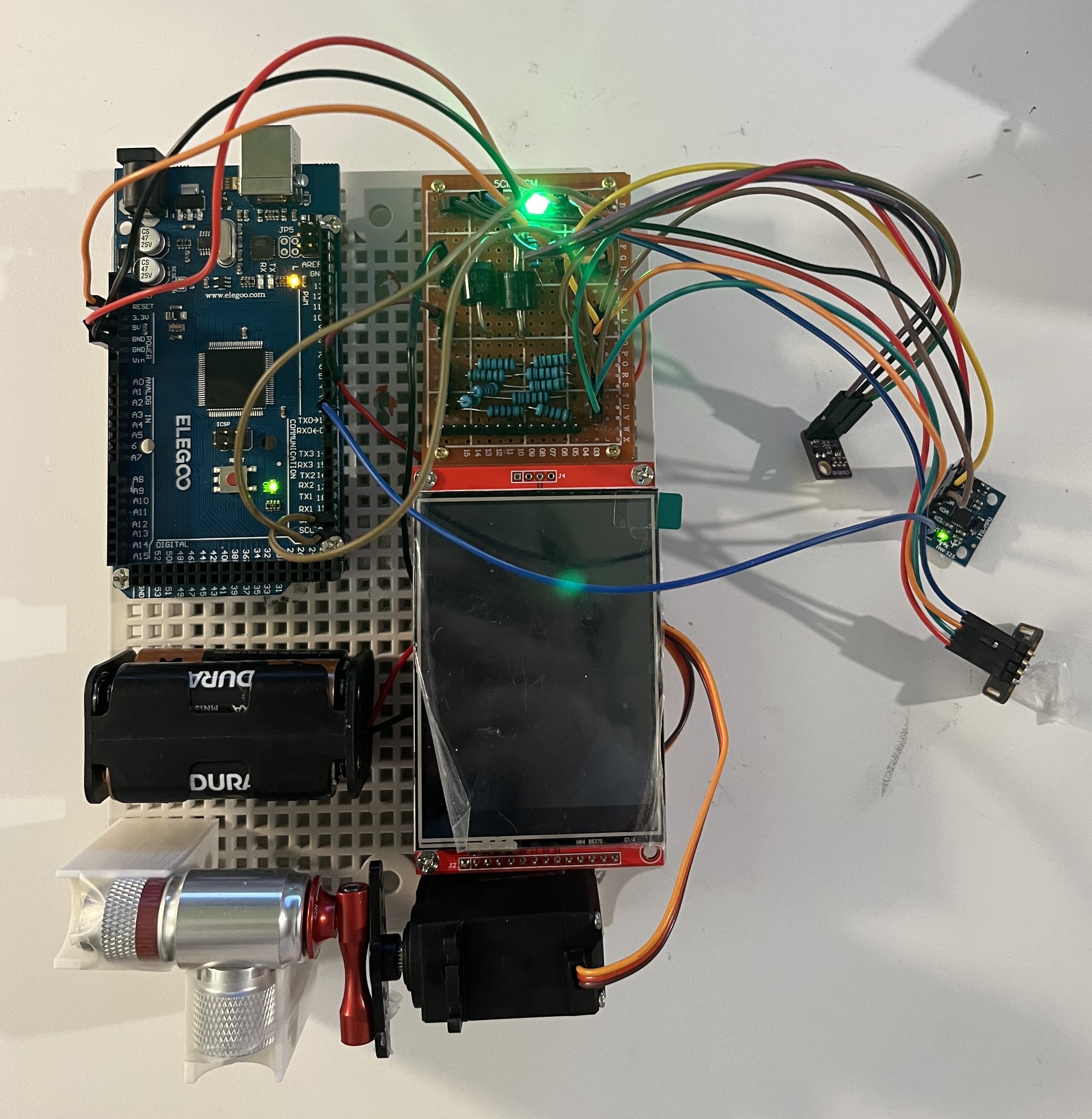Build
We started with using an Arduino Uno to integrate the sensors, but issues with memory and storage arised, so we switched to an Arduino Mega. We constructed a breadboard containing all the necessary pinouts for each sensor, and eventually added a battery pack to power the device. When specific conditions occur such as an abnormally high heart rate for thirty seconds, a servo motor is activated to turn a valve that could be attached to a CO2 cartridge and inflate an airbag. Holders to attach the servo motor to the valve were created using CAD and 3D printing.
Prototype
